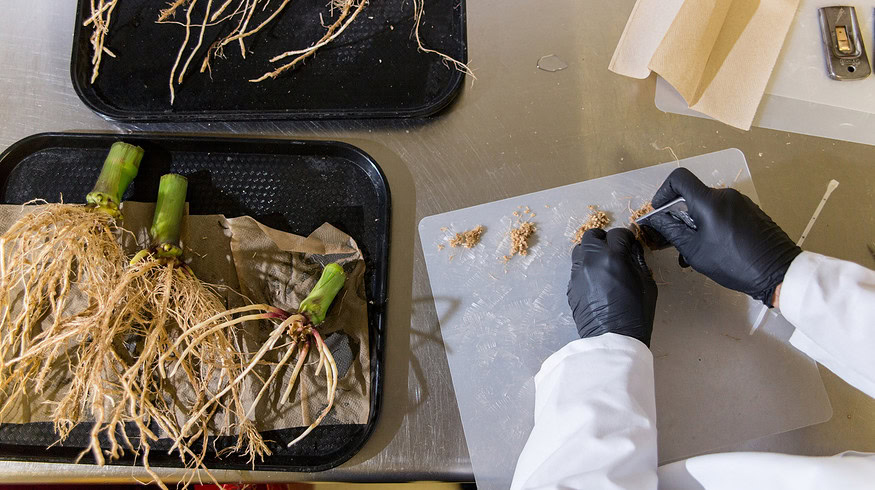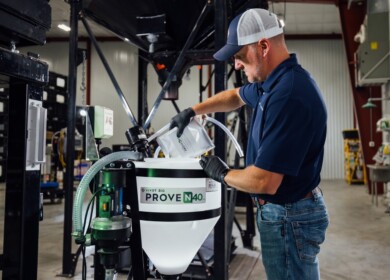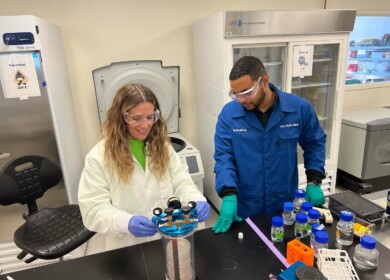Breakthrough research on gene-edited microbes offers new nitrogen source for farmers

Peer-reviewed research recently published in Scientific Reports has unveiled a potentially revolutionary technology that could transform the century-old method of nitrogen delivery to crops. This collaborative study, involving scientists from the University of Wisconsin-Madison, Purdue University, and Pivot Bio, presents pioneering evidence that gene-edited microbes can effectively fix atmospheric nitrogen and transfer it directly to cereal crops.
The study utilized isotopically labeled nitrogen to trace its journey from the air to the chlorophyll in corn leaves, confirming that the nitrogen was fixed by the gene-edited microbes. Field studies further demonstrated that these microbes could provide an amount of nitrogen comparable to up to 40 pounds of synthetic nitrogen fertilizer per acre, achieving similar crop yields.
Dr. Bruno Basso, a Michigan State University professor not involved in the study, highlighted the complexity of managing nitrogen levels in crops due to unpredictable weather and varying soil conditions. This complexity often makes it challenging to precisely match the nutrient supply with crop demand.
Diazotrophs, a type of bacteria naturally capable of converting atmospheric nitrogen into ammonium, are central to the process known as biological nitrogen fixation (BNF). However, traditional soil diazotrophs lose their nitrogen-fixing ability when exposed to high nitrogen levels over extended periods, a situation common in fields treated with synthetic fertilizers.
The researchers at Pivot Bio have overcome this challenge by developing gene-edited microbes that continue to fix nitrogen even in nitrogen-rich environments. “With the gene edits, we blind microbes to the presence of nitrogen in their surroundings, enabling them to continue fixing ammonium and delivering it directly to the crop’s root system,” explained Dr. Karsten Temme, chief innovation officer at Pivot Bio.
This development is part of Pivot Bio’s broader strategy to enhance nitrogen efficiency in farming and reduce environmental impact from synthetic fertilizers. The field trials included a range of isotopic experiments under real-world conditions, confirming the nitrogen fixation capability of the gene-edited microbes. Samples collected from various farms showed that replacing traditional nitrogen fertilizers with Pivot Bio’s PROVEN® 40 led to early season increases in nitrogen levels in plants without affecting overall yield.
The implications of this research are significant, according to Dr. Temme, as it suggests that farmers can reduce their reliance on synthetic nitrogen fertilizers without sacrificing crop productivity. This advancement not only benefits farmers but also has the potential to lessen environmental pollution and decrease the agricultural carbon footprint.
Enjoyed this story?
Every Monday, our subscribers get their hands on a digest of the most trending agriculture news. You can join them too!















Discussion0 comments